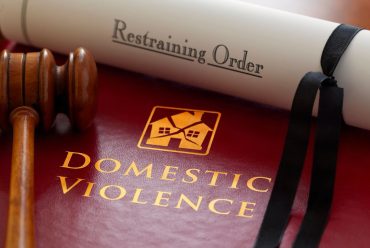Do Step-Parents Have to Pay Child Support?
When you marry someone with children, you naturally step into the role of a caregiver. If the relationship ends in separation or divorce, you might assume you won’t have to pay child support. However, Ontario family law often views this differently. Let’s unpack the details so you know where you stand.
Understanding the Concept of “Children of the Marriage”
In Ontario family law, the term “children of the marriage” extends beyond biological ties. According to the Divorce Act, a child is considered a “child of the marriage” if:
- Both spouses stand in the place of parents, even if one is not the biological parent
- One spouse is the biological parent, and the other spouse has acted as a parent
Even though the definition is broad, it is put in place to make sure non-biological children, provided the step-parent has met the in loco parentis test.
What is the in loco parentis test?
This test determines if the step-parent has taken on the responsibilities and roles of a parent during the relationship. For example, if a step-parent provides financial support, takes part in daily caregiving, or acts as a parental figure, the child may qualify as a “child of the marriage.” This means, you as a step-parent, are responsible for child support after separation.
Surprisingly, even without legal adoption or formal recognition as a parent, a step-parent may be obligated to support a child if they have demonstrated an intention to treat the child as their own. Courts focus on the child’s needs and whether removing support would leave them financially vulnerable.

Are step-parents considered parents by Ontario family law?
Ontario family law does not automatically recognize step-parents as legal parents. However, under both the Divorce Act and the Family Law Act, a step-parent can be deemed a parent if they have taken on a parental role during the relationship.
When is a step-parent considered a parent?
Some of the situations are as follows:
Provided financial support – If the step-parent contributed to the household finances or directly to the child’s needs
Acted as a disciplinarian – If the step-parent assumed responsibility for the child’s discipline and day-to-day care
Involved the child with extended family – Courts assess whether the child was integrated into the step-parent’s family, for example; attended holidays, birthday parties, or family get togethers
Displayed long-term commitment – If the step-parent showed consistent care and responsibility over time
Maintained a close bond after separation – A step-parent who continues to stay involved in the child’s life after separation is more likely to be seen as a parent.
Married vs. Unmarried Couples:
For married couples, the Divorce Act governs child support obligations, focusing on whether the step-parent stood in place of a parent. For unmarried couples, the Family Law Act applies, and courts look for a “settled intention” to treat the child as their own.
Am I automatically obligated to make child support payments?
No, you aren’t automatically obligated, but if your former partner makes a request with proof and Ontario family court agrees, then, yes, you are obligated. In most cases, the amount is decided using Federal Child Support Guidelines and Ontario Child Support Guidelines. But the judge might set a lower amount because it is still the child’s biological parents legal obligation to meet their financial needs.
This information is general legal advice, and your case may differ. Noori Law is here to help you understand your rights and responsibilities. Schedule a consultation today!








